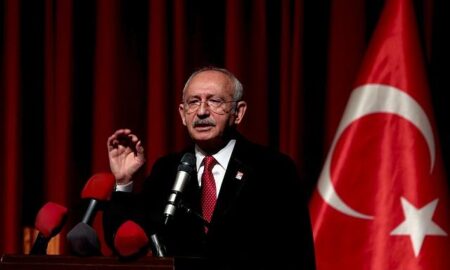Title: Understanding the UN Ocean Conference and Its Global Significance
As the world grapples with escalating environmental challenges, the United Nations Ocean Conference stands out as a pivotal platform for action and collaboration. Set against the backdrop of a rapidly deteriorating marine ecosystem, this international gathering brings together policymakers, scientists, and ocean advocates to address pressing issues such as overfishing, pollution, and climate change. In this article, we will explore the objectives of the UN Ocean Conference, its importance for global sustainability efforts, and the impactful initiatives emerging from its discussions. As we delve deeper, it becomes clear why this conference is not only relevant but crucial in safeguarding the future of our oceansŌĆöa vital resource for humanity and the planet.
Understanding the UN Ocean Conference and Its Global Importance
The UN Ocean Conference serves as a pivotal global platform aimed at galvanizing action to tackle the pressing challenges facing the world’s oceans. Since its inception, the conference has emphasized the urgent need for sustainable ocean management and the protection of marine biodiversity. Key issues addressed include the alarming levels of plastic pollution, the impacts of climate change, and the need for effective governance of marine resources. By bringing together member states, civil society, and scientists, the conference fosters a collaborative approach to resource management and encourages innovative solutions that can benefit both marine environments and coastal communities.
Notably, the conference emphasizes the importance of the Sustainable Development Goals (SDGs), particularly Goal 14, which focuses on conserving and sustainably using oceans, seas, and marine resources. Participants engage in various discussions and workshops aimed at sharing best practices and strategies for ocean conservation. Key outcomes often include:
- Commitments from countries to enhance marine protection.
- Partnerships formed across sectors for collaborative research.
- Action plans to combat ocean acidification and overfishing.
This collaborative framework is crucial as oceans regulate climate, provide livelihoods for millions, and support global biodiversity. The conference highlights that sustainable ocean practices are not just environmental necessities but also vital for economic stability. As nations face increasing pressure from environmental degradation, the UN Ocean Conference is essential for fostering a united global effort towards safeguarding our oceans for future generations.
Key Issues Addressed at the UN Ocean Conference
The UN Ocean Conference has emerged as a critical platform for addressing the challenges facing our oceans. Key issues include the urgent need for sustainable fishing practices, which are vital for both ecological balance and the livelihoods of millions of people worldwide. Additionally, the conference has spotlighted the alarming rise of marine pollution, particularly plastic waste, which endangers marine life and human health. Climate change and its impacts on ocean temperatures and acidity levels are another focus, necessitating immediate action from all nations to mitigate these effects and protect marine biodiversity.
In order to foster international cooperation and drive actionable outcomes, various strategies were discussed during the conference, including:
- Integrated coastal management: Ensuring the sustainable use of coastal resources and habitats.
- Marine protected areas: Expanding these zones to preserve biodiversity and promote recovery of marine ecosystems.
- Research and innovation: Encouraging scientific collaboration to better understand ocean health and develop new technologies for conservation.
The commitment to financing ocean-related initiatives has also been a pivotal discussion point, with various stakeholders exploring funding mechanisms that can support developing countries in their efforts to manage their marine resources effectively. As nations unite to confront these pressing challenges, the outcomes of the conference hold potential not just for inspiring policy change but also for igniting grassroots movements aimed at protecting our oceans for future generations.
Impacts of Ocean Degradation on Biodiversity and Climate
As the health of our oceans continues to decline, the repercussions are felt across the globe, impacting not only marine biodiversity but also climate systems. Coral reefs, which are vital for supporting marine life, are suffering from rising sea temperatures and acidification, leading to bleaching events and loss of habitat. This decline threatens species such as fish, mollusks, and various marine mammals that rely on these ecosystems for survival. Furthermore, the overexploitation of fish stocks has led to a significant decrease in populations, disrupting the ecological balance and putting immense pressure on food chains. The loss of diverse marine species diminishes resilience in ocean ecosystems, making them more vulnerable to climate impacts.
Moreover, oceans play a critical role in regulating the Earth’s climate, absorbing a substantial amount of carbon dioxide. As degradation continues, their ability to sequester carbon diminishes, elevating atmospheric CO2 levels and exacerbating global warming. This alteration has a cascading effect, leading to changes in ocean currents, weather patterns, and extreme climatic events. The economic ramifications are equally staggering, as communities dependent on healthy marine ecosystems face dwindling resources and livelihood challenges. Addressing ocean degradation is not merely an environmental issue but a pressing socioeconomic concern that calls for immediate global action.
Recommendations for Global Action and Collaboration Post-Conference
In the wake of the UN Ocean Conference, it’s imperative that global stakeholders unite to address the challenges facing our oceans with urgency and commitment. To foster meaningful collaboration, countries must prioritize intergovernmental partnerships that promote sustainable ocean management. This involves sharing best practices, investing in marine research, and developing joint initiatives that protect marine biodiversity. Furthermore, enhancing public-private partnerships can facilitate innovative solutions and funding for ocean conservation projects, ensuring that community voices are heard and integrated into policy development.
Immediate actions are necessary to operationalize commitments made during the conference. Stakeholders are encouraged to establish task forces that focus on key areas, such as combating marine pollution, promoting sustainable fishing, and restoring marine habitats. Here are some specific recommendations:
| Action Item | Description |
|---|---|
| Develop Marine Protected Areas | Create designated zones to conserve marine ecosystems without human interference. |
| Enhance Data Sharing | Establish platforms for sharing oceanographic data among countries for better resource management. |
| Strengthen Enforcement Mechanisms | Implement stricter regulations and monitoring to combat illegal fishing and protect marine life. |
| Promote Education and Awareness | Launch global campaigns to raise awareness on the importance of ocean health. |
In Conclusion
In conclusion, the UN Ocean Conference stands as a pivotal forum for global leaders, scientists, and activists to unite in addressing the critical challenges facing our oceans. With the health of marine ecosystems directly linked to the wellbeing of our planet and its inhabitants, the outcomes of this conference could shape policies and initiatives aimed at safeguarding our oceans for future generations. As we grapple with the realities of climate change, pollution, and biodiversity loss, the conference serves not only as a platform for dialogue but also as a call to action. The stakes have never been higher, and ensuring the survival of our oceans is not just a matter of environmental concern but a vital imperative for humanity’s future. Stakeholders must seize this opportunity to commit to meaningful change and foster a collective responsibility towards preserving the blue heart of the Earth.




